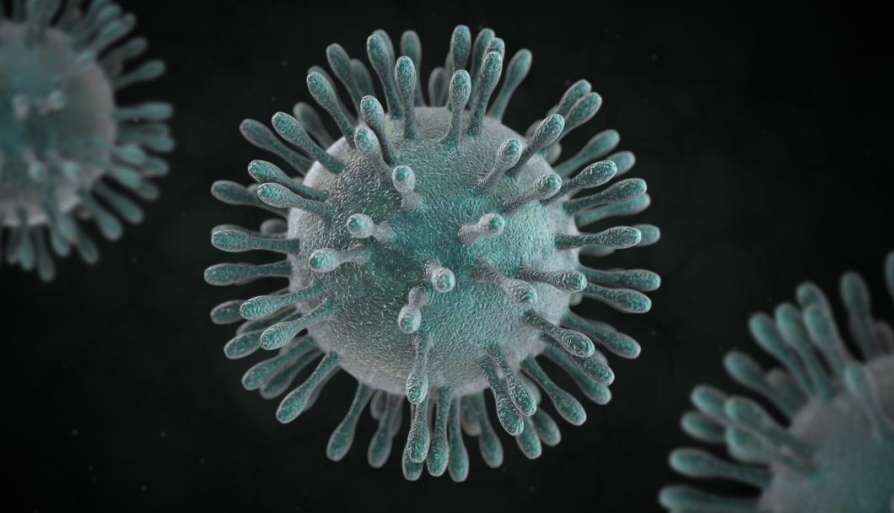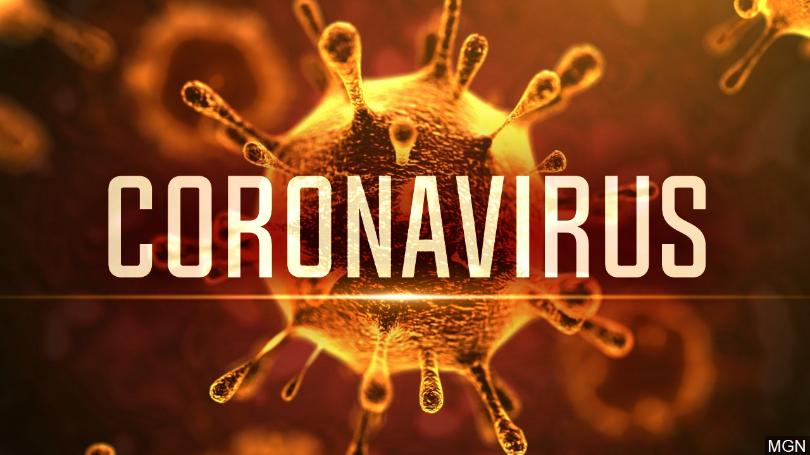
Many women couldn’t go for antenatal care and that the situation of child delivery in local health centres has equally been quite cumbersome.
In the full glare of the afternoon sun, Rabiat Shafiu clung to her four-day-old daughter at the entrance of the emergency unit of the Usmanu Danfodiyo University Teaching Hospital (UDUTH), Sokoto.
Nervous and tired, Mrs Shafiu said she had spent hours at the hospital before finally being attended to by a nurse. According to her, the doctors who ought to attend to her baby had left her in the lurch.
“We came here this morning,” she began, eyes bloodshot. “My child is four-day-old and doesn’t have a name yet. We are here because my child developed navel complications. We were told that those that are doing the work, the doctors, have left because they are on strike. But the child is being attended to by a nurse now.”
Mrs Shafiu explained that due to the coronavirus pandemic and the medical doctors’ strike, priority is given to emergency cases at the expense of patients with routine medical concerns.
Hassanatu Ibrahim, another patient at the teaching hospital, told PREMIUM TIMES she travelled to the city centre from Gongono village in Sokoto North Senatorial District because she couldn’t get basic healthcare at the nearby local primary health centre.
Mrs Ibrahim, a 37-year-old pregnant woman, explained that life hasn’t been the same for women, especially in rural parts of Sokoto, since the coronavirus reared its ugly head to disrupt the global socio-economic order.
“The coronavirus has changed the healthcare system in remote areas like my village because hospital staff are scared of transmission of the disease,” she said, her voice a mixture of melancholy and uncertainty.
“So they don’t treat us the way they used to in the past; these days, when you show up with ailments, they are likely to evade you or send you to big hospitals in the city here in Sokoto,” she added.
Speaking at the teaching hospital, Mrs Ibrahim lamented that the health centres were largely attending to few patients because they were afraid of the risk of transmission, even for women who came in for routine surgeries and check-ups.
“Many women couldn’t go for antenatal care,” she said, adding that the situation of child delivery in local health centres has equally been quite cumbersome.
Coronavirus in Nigeria
On Saturday, Nigeria recorded 49 additional fatalities from the coronavirus pandemic with 964 fresh cases reported across 19 states and the Federal Capital Territory (FCT).
Data from the Nigeria Centre for Disease Control (NCDC) showed that Nigeria’s total infection from the pandemic stood at 195,052 while the fatality toll increased to 2,544 from 2,495 reported 24 hours earlier.
According to the disease centre, a total of 10,067 Nigerians were down with the disease nationwide.
Nigeria recorded its index case in Lagos in March 2020, marking the beginning of a change in dynamics in almost all aspects of the life of the people. The nation has gone through different phases of lockdowns, as means of curbing the spread of the disease.
In March, the coronavirus vaccine arrived in Nigeria when the nation received 3.94 million doses of the Oxford-AstraZeneca vaccine through the COVAX facility. The nation has since then begun the administration of the vaccines.
But while Nigeria and the rest of the world continue to tackle the spread of the disease, the pandemic has had an enormous effect on the healthcare system of the country.
The effect had been most felt in recent weeks amid strike actions embarked upon by medical doctors across the country.
Doctors’ strike
In August, members of the National Association of Resident Doctors (NARD) resumed indefinitely the strike it had suspended earlier in April.
The union said that having observed things for more than 100 days, it had realised that the government was taking its members for granted.
The doctors’ grievances are contained in a Memorandum of Action (MOA) endorsed in April by both the striking doctors and the government representatives including Mr Ngige. The doctors had demanded amongst other things, the immediate payment of COVID-19 inducement allowance to some of its members in federal and state tertiary institutions.
They also demanded the review of hazard allowance for health workers due to the risk associated with their profession, decrying the undue hardship its members on GIFMIS platform are facing due to the delays in payment of their salaries ranging from three to seven months.
Aliyu Jamilah, a resident of Sokoto, told PREMIUM TIMES that the strike comes amid a fresh wave of coronavirus infections, straining Nigeria’s health care system.
Overstretched health facilities
Speaking at the Usman Dan Fodio Teaching Hospital, Ms Jamilah explained that if any patient has COVID-19 symptoms, the consultants are available to admit such patients in the isolation centre.
She added, however, that because the consultants on ground are not much due to the strike action, some COVID-19 patients might not be attended to as ideally expected.
Ms Jemilah added that since the fresh wave of infections reared its head, women have been the most affected in Sokoto state, especially in rural areas.
At the teaching hospital, PREMIUM TIMES observed that most of the units are sparsely populated largely due to the unavailability of medical officials. The most crowded place, however, is the Accident and Emergency section (A&E).
Our reporter also observed that while some of the staff could be seen with face masks, the majority of the patients and their relatives had no face masks, and many cared not about COVID-19 social distancing protocol.
Usman Usman, a resident of Sokoto, told PREMIUM TIMES he arrived in Sokoto from Kebbi on Saturday, August 20, to check on his sick father that had been admitted at Usmanu Danfodiyo University Teaching Hospital (UDUTH). After witnessing the situation on Sunday, he said that since he arrived, he hadn’t seen any medical doctor at the hospital.
“I came here yesterday to check on my father who is admitted here,” he said. “Since I came, it’s as if there is no doctor in the hospital.”
He added that the strike action has had an enormous effect on the hospital’s ability to address coronavirus incidences and other routine surgeries.
The poor healthcare delivery system at the UDUTH has pushed many Sokoto residents to the Specialist Hospital in the Sokoto metropolis, PREMIUM TIMES findings show.
At the specialist hospital, this newspaper observed that there has been an influx of patients, resulting in overcrowded units and poor adherence to covid-19 protocol.
Aisha Abdulkareem, who came to the city centre from a village near Ilella local government, told PREMIUM TIMES that the situation had been most difficult for her and two other women who came with her to Sokoto.
“Myself and two women who came with me to Sokoto have had a tough time at local health centres in and around Ilella,” she said in Hausa, stifling a tear. “Someone advised us to come to Sokoto but the crowd has been quite massive.”
Meanwhile, in markets and parks across the metropolis, people move freely without basic adherence to coronavirus protocols.
When PREMIUM TIMES visited the central market in Sokoto, people moved freely without face masks and mingled in crowded stores.
A consultant at the UDUTH, who declined to have her name in print because she was not authorised to speak, told PREMIUM TIMES that although the strike action embarked upon by doctors in the middle of the coronavirus pandemic affects different categories of people, women are the most affected.
“We witness different sorry tales here almost every day; about women finding it difficult to access medical service, especially in rural areas,” she said.
“Women and children are the most affected, from my experience. Many of them can’t do routine checks in those villages, or even basic pregnancy-related tests. They are often directed here because of the fear of transmission. Don’t forget that most local PHCs don’t have the facility to attend to coronavirus patients so anybody that shows up with ‘strange’ symptoms would either be avoided or told to come to Sokoto.
“Sadly, even things aren’t in good shape here, due to lack of basic facilities and the strike action by doctors. It’s pathetic.”
Ms Jemilah called on the governments at all levels to address the grievances of the feuding doctors and provide enough facilities to ease the pains of Nigerians, especially rural women resident in the hinterlands of Sokoto.

